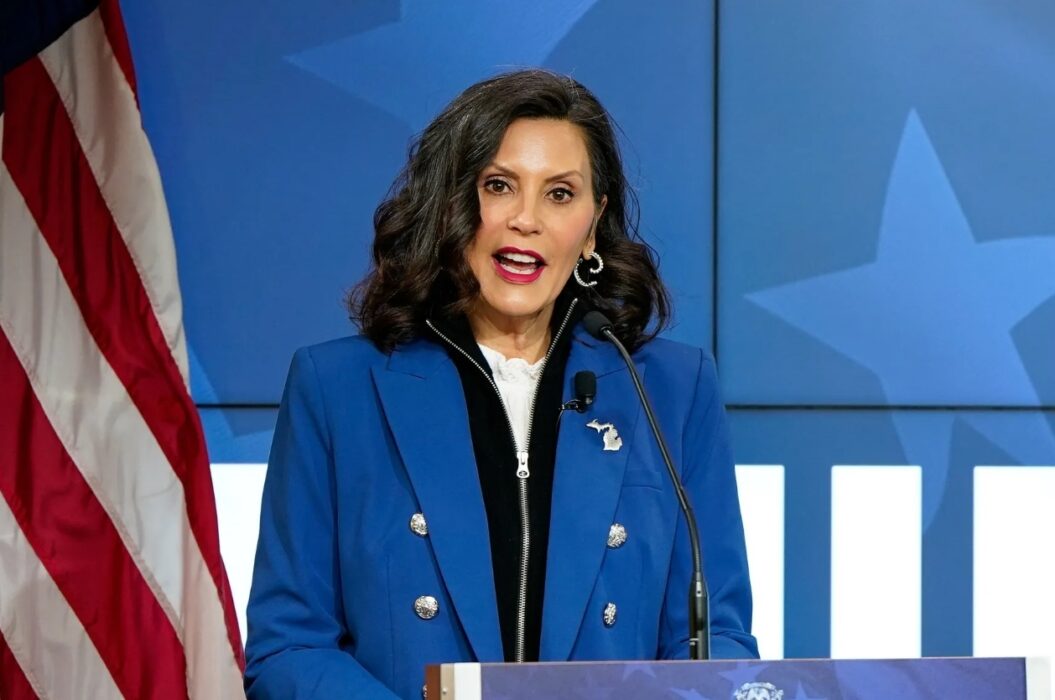Michigan Governor Gretchen Whitmer’s appearance in the Oval Office this week, standing beside President Donald Trump as he signed aggressive executive actions, marked a dramatic shift in political optics for the Democratic leader—and underscored her evolving strategy as a potential 2028 presidential contender.
Once a sharp critic of Trump during his first term, Whitmer now finds herself navigating a more complex political terrain. Her presence during Trump’s announcement of investigations into political opponents and a retaliatory executive order against a law firm was unexpected.
According to her office, the visit was intended to discuss the impact of Trump’s tariffs on Michigan’s auto industry, not to endorse the broader content of the president’s remarks.
The governor’s statement that she was “surprised” by her inclusion in the event reflects a clear effort to maintain distance. Yet her participation—however unplanned—has already drawn attention, especially as she emphasizes shared priorities such as domestic manufacturing and reindustrialization.
Gov Gretchen Whitner Agrees With Trump On Fair Trade
"I understand the motivation behind the tariffs. Here's where president Trump and I do agree, we do need to make more stuff in America. More cars and chips. More steel and ships. We do need fair trade."https://t.co/WdvGUgAOZd pic.twitter.com/I8P0N09wrH
— Mr Producer (@RichSementa) April 10, 2025
Whitmer’s policy speech earlier that day, delivered just blocks from the White House, included cautious agreement with Trump’s motivation behind tariffs, while also criticizing their implementation.
Her position—supportive of reshoring industry but wary of the “blunt tool” of blanket tariffs—distinguishes her from other prominent Democratic governors who have continued to oppose Trump’s trade agenda in more explicit terms.
Unlike California Governor Gavin Newsom and Illinois Governor JB Pritzker, who remain vocal critics of the administration, Whitmer is walking a careful line. She governs a swing state with a divided legislature and an electorate that voted for Trump in 2016 and 2024. Her approach, while less confrontational, is calculated to maintain influence and protect Michigan’s economic interests.
Statements from Democratic governors such as Colorado’s Jared Polis and Pennsylvania’s Josh Shapiro reflect growing divisions within the party over how to respond to Trump’s second term. Whitmer’s focus on engagement rather than confrontation may appeal to centrist voters and industrial states, but it also exposes her to criticism from the party’s progressive wing.

